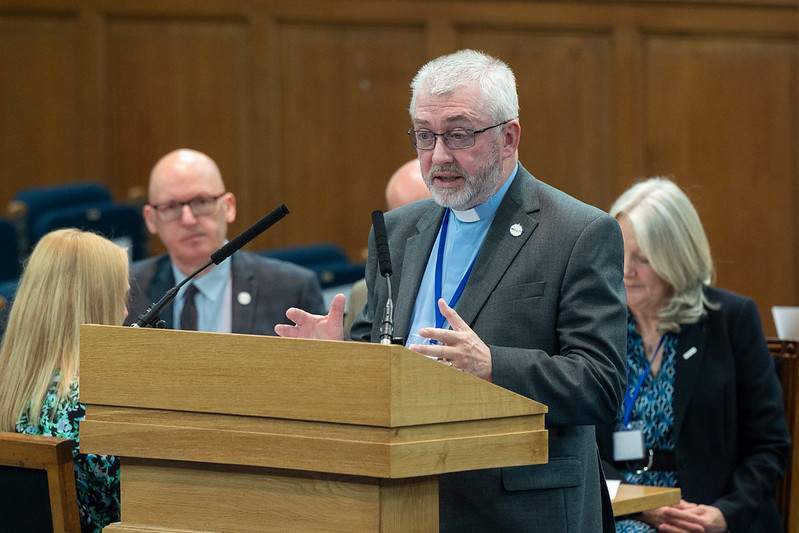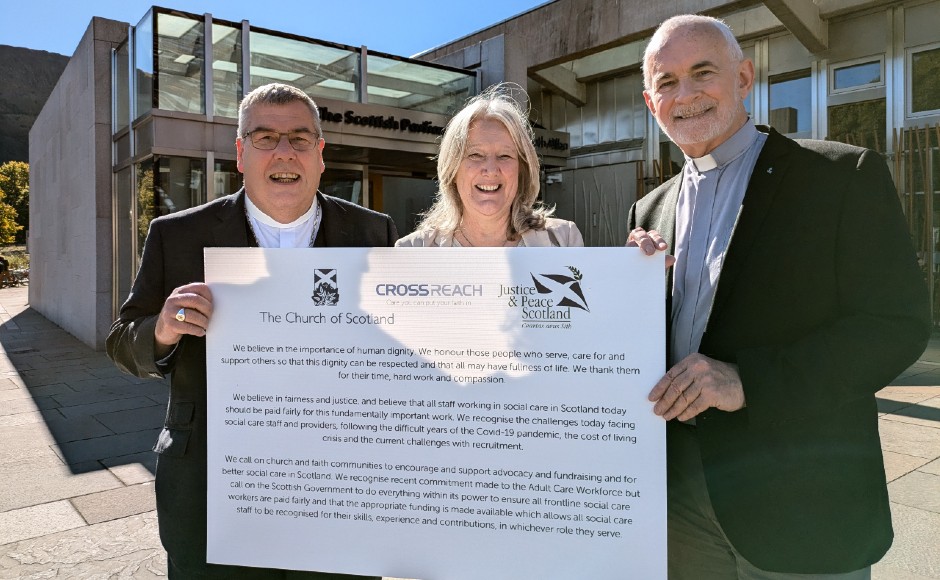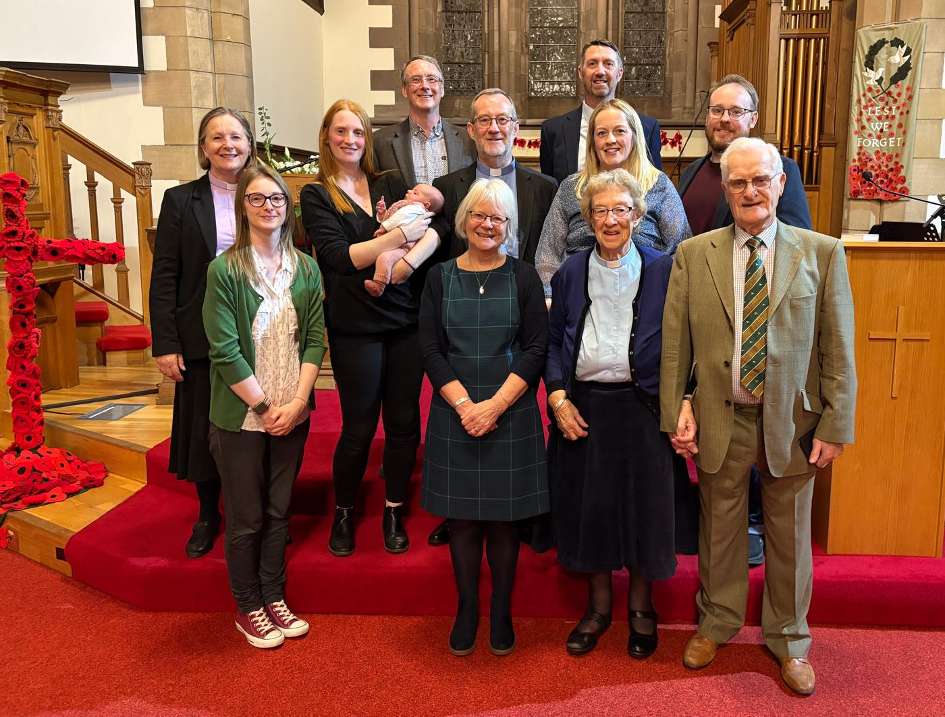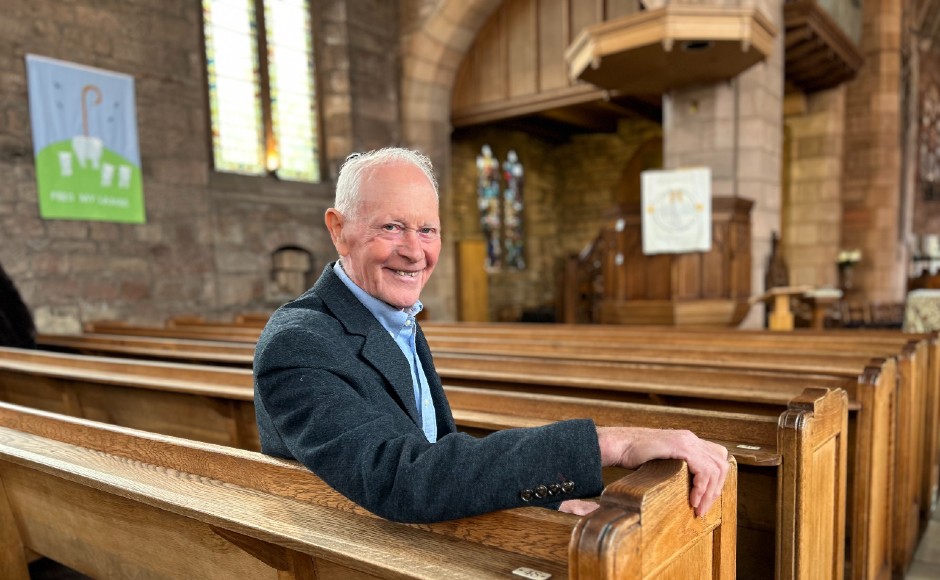Kirk warns of care sector collapse unless pay crisis resolved
Published on 21 May 2024 5 minutes read
Kirk members have been called on to lobby MSPs to tackle Scotland's care sector crisis, with the warning that the system is in danger of collapse.
The plea came from Rev Thom Riddell, convener of CrossReach, the Church of Scotland's social care arm, after he presented the Social Care Council report to the General Assembly of the Kirk in Edinburgh, and revealed that low pay rates were the biggest challenge to recruitment and retention of staff across the care sector.

Following last year's General Assembly, the Church of Scotland joined over 400 faith leaders in signing a declaration highlighting the issue of fair pay as a matter of justice, fairness and equality, while the then Moderator, Very Rev Sally Foster Fulton and staff from CrossReach and the Faith Action Leadership and others, had continued to engage with the Scottish Government over their concerns.
While there had been some successes in addressing the issue, Mr Riddell told the General Assembly there was still much to do, with recruitment and retention a major issue for CrossReach and the wider sector, which sees a 25% turnover of staff.
"The 2023 report, Unfair To Care, provides evidence that the social care workforce now sits at 24% behind their NHS counterparts doing similar work, a position which is fundamentally unfair, and which needs to change," he said.
"While the issue of recruitment is challenging, more challenging still are the conditions across social care as a whole. On a regular basis we hear of funding cuts and closure of services. These cuts affect the support that CrossReach can offer as they do the services delivered by other social care providers, including local authorities."
Responding to the report, Mrs Foster-Fulton said there was a recruitment crisis across the sector because people – some 86% of them women – were not being paid properly, and encouraged everyone to do what they can to support those working with the most vulnerable people in the country.
In answer, Mr Riddell said the prayers of supporters were always valued and the power of those prayers could never be underestimated, but he also suggested members lobby their MSPs and MPs, adding: "If we don't do something about it, the care sector is going to collapse."
Bright moments
However, Mr Riddell also reported "many more bright moments" over the last year as CrossReach journeyed with 28,000 people across Scotland and supported them to overcome challenges and enable them to attain the highest quality of life possible.
Examples included a woman who had overcome 35 years of substance abuse to graduate as a recovery volunteer, a dementia patient helped by a CrossReach Heart for Art group to create his own paintings, and the child who was able to participate in a variety of activities at CrossReach's Mallard Centre in Glasgow, despite his complex disability.
"I could spend the whole morning sharing stories of success like these," Mr Riddell said.
"Stories of people just like you and me, our families and our friends. People often doing ordinary things despite their extraordinary circumstances and well supported by the people they trust. Mindful of my limit of 15 minutes, however, I will simply remind you that you can read more of the everyday extraordinary in our impact report."
The support provided by CrossReach helped prevent family breakdown, enabled those with dementia to continue to live in their communities, supported others with a physical or learning disability to live according to their choices and aspirations, and aid those with problematic substance abuse or mental health issues in their recovery, Mr Riddell added.
"These services are high quality, cost effective and deliver good outcomes and can help relieve strain on the already overloaded NHS or Scottish Prison Service," he added.
However, he warned the need was growing and every day CrossReach had to turn people away.
"To date, within CrossReach we have been able to find solutions to keeping most of the services going and invest in areas of development. Some through the generosity of strangers, others by thinking about new ways to attract statutory or charitable funding," he stated.

"The Church, through CrossReach, remains responsive to the social and physical needs of the nation, as it did in 1904 when the Committee of Social Work was formed, but we do recognise that at times of great challenge things need to change."
Over the last year, CrossReach chief executive Viv Dickenson had also given evidence to the Scottish Covid Inquiry, which had a particular emphasis on the impact on CrossReach's care homes, and the Scottish Child abuse enquiry, where she apologised on behalf of CrossReach and the Church of Scotland for any circumstances which had led to the harm of others and gave assurances that lessons had been learned.
A strong foundation of love and support
CrossReach has also undertaken a significant exercise to find out what it meant to its service users, their families, partner organisations and staff, Mr Riddell added.
The results would be used to find a way forward that would continue CrossReach's proud tradition of service, but also allow it to be less reliant on support from central church funding.
"As we collected evidence from those using our services, the top three words used were happy, safe and loved," he said.
"That is a strong foundation on which to build and we will continue to listen to those using services and those supporting them so that we can make good decisions for the future.
"Looking to the future I know that the way ahead can look uncertain at times, but the past year has shown us that there is much power in our partnerships as we work together to fulfil the mission of the Church at this time.
"There is hope, and I trust that the stories you have heard today, and which you will find more of in the impact report, speak of the presence of an active God in an active Church."
Former Moderator Very Rev Iain Greenshields asked how CrossReach was responding to the rising number of drug and alcohol deaths in Scotland and Mr Riddell pointed to a £2.4 million investment in Beechwood Recovery Centre in Inverness, increasing capacity by 46 per cent and serving those with addiction issues in the Highlands, Islands and Moray, while in Glasgow, CrossReach was also accessing funding released by the Scottish Government.


